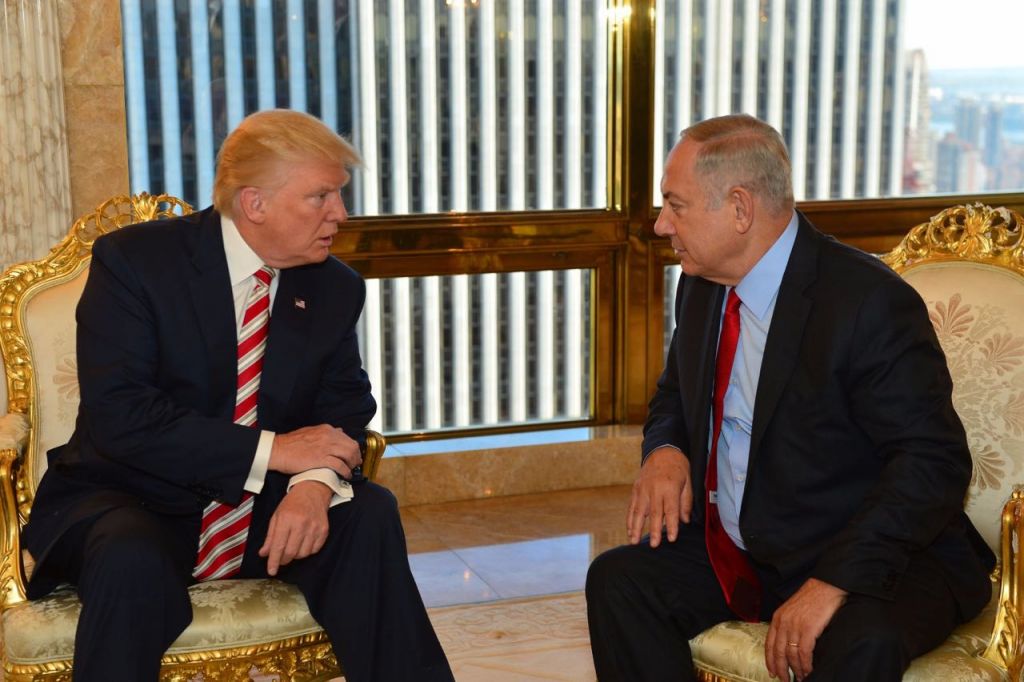Israel’s Prime Minister Benjamin Netanyahu’s first visit to Washington in the Trump era takes place today. Suddenly overshadowed by the Flynn/Russia story, the visit may prove to be of little import. We may see only the optics of a different physical chemistry between Netanyahu and anyone not named Obama occupying the White House. And we may hear little of substance about the recent settings and re-settings of the Israel-USA relationship regarding the location of the U.S. embassy, the U.S. attitude toward Israeli settlements, and the merits of a two-state solution for Israel and the Palestinians.
So rather than dwell on the present, let’s remember the historical biographical background of Israel’s Prime Minister. Born and raised in Israel, Bibi is the son of Jewish historian, BenZion Netanyahu (1910-2012), a scholar and activist in Zionist public affairs as well, most famously as secretary to Vladimir Jabotinsky, founder and leader of the Revisionist movement in twentieth-century Zionism. Netanyahu’s father, and through him Jabotinsky, remain the primary intellectual and political influences acting upon the man who has now served Israel as its Prime Minister longer than David Ben-Gurion.
How does Revisionism continue to play a role? Revisionism opposed Socialist Zionism for two main reasons. It disagreed philosophically with the anti-capitalism thrust of socialism, and represented typically bourgeois or petit-bourgeois Jews throughout the diaspora as well as in Mandatory Palestine and later, the State of Israel. This may be seen in the tilt toward Western-style capitalism in Bibi’s Israel.
Revisionism also argued for a more vigilant opposition both to the British and to Arab interests, which included Jabotinsky’s claim for an “Iron Wall” defending the Jewish homeland, and a “Greater Israel” defined by earlier British demarcations of the size of Mandatory Palestine. It insisted that Jewish honor demanded hawkishness, creating a new Zionist Jew “unafraid” of the non-Jew and therefore disinclined to fight for one’s interests rather than negotiate. This muscular conception took root in a psychic and material militarism.
The juxtaposition of general political views and these strategic conceptions made Jabotinsky an interesting character in the Zionist story. A European cosmopolitan and social liberal in certain ways, he argued for the civil equality of Jews and Arabs, meaning that everyone should be a citizen of the putative Jewish state. But civil rights to any and every individual means something different from national political rights to a group—in this case Arabs. In a Jewish state, the Jews constituted the only group to possess group national rights.
These views should remind us of some of the current Prime Minister’s deepest memories, principles, and likely commitments. Does he most likely believe that Israel should be a democracy with equal protection of the laws for all of its citizens? Probably yes. Does he believe philosophically and strategically in a larger rather than smaller Israel? Yes. Does he believe in national political rights for a non-Jewish minority? Probably not (This claim would apply to virtually any nation-state: by definition such states exist to serve the needs of the historical nation and not to serve the historical needs of other ethnic national groups that happen to reside there). Does he believe in a two-state solution so as to avoid the problem of Israel remaining both a Jewish and democratic state? If he had to choose between civil equality and the Israeli Jewish nation-state, which would he choose? We shall see.
Postscript
I wrote the above post this morning. By the afternoon the news appeared: the president seems to harbor no particular preference for one state or two. This would seem to encourage Bibi in his natural historical and intellectual preference for avoiding Palestinian statehood in the interest of a Greater Israel. Stay tuned.
- DBS

